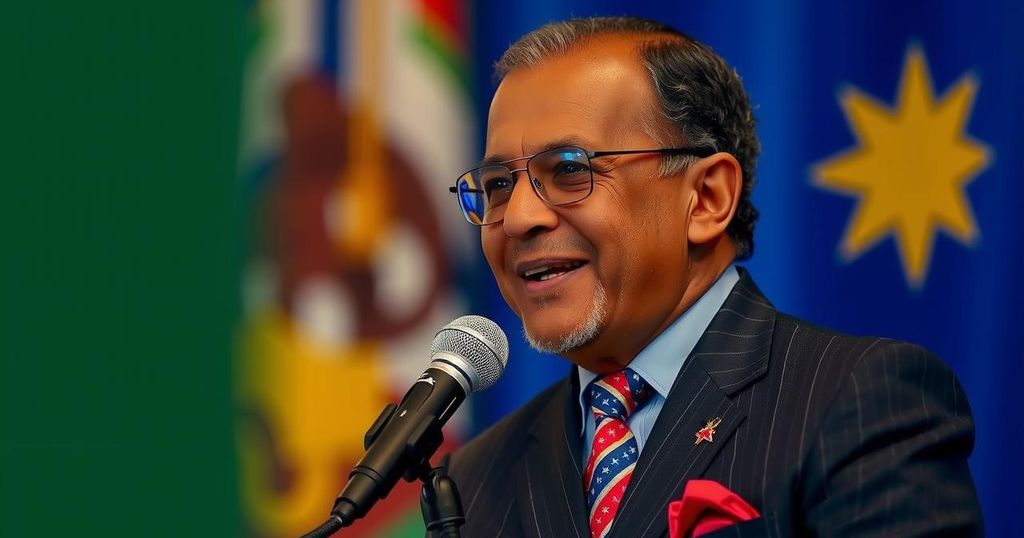Navin Ramgoolam is set to return as prime minister of Mauritius following a decisive victory in the latest legislative elections. As a veteran politician with a legacy rooted in the country’s independence, he aims to address pressing issues such as economic stability and political division in Mauritius. His comeback is widely seen as a testament to his perseverance amid past controversies and electoral defeats.
Navin Ramgoolam, a seasoned Mauritian politician, is poised to return as prime minister following a resounding victory in the recent legislative elections. Having previously served as prime minister from 1995 to 2000 and again from 2005 to 2014, Ramgoolam leads the Labour Party and the victorious Alliance for Change coalition. His father, Seewoosagur Ramgoolam, is recognized as the father of Mauritius, having guided the nation to independence in 1968. The recent election results have indicated a significant defeat for Prime Minister Pravind Jugnauth’s coalition, which has allowed the opposition, under Ramgoolam’s leadership, to assume power. Ramgoolam’s campaign focused on uniting a nation beset by economic challenges and political divisions, promising to restore democracy and stimulate economic growth while addressing the rising cost of living. His resilience and determination have been praised as emblematic of his long political journey, underscoring his commitment to serving the people of Mauritius. Historically, Ramgoolam’s career has been met with both triumph and controversy. He faced legal challenges following his electoral defeat in 2014, including allegations of conspiracy and money laundering; however, he has consistently rejected these accusations as politically motivated. Despite these setbacks, his recent electoral victory marks a significant career revival for the 77-year-old politician, signaling a new chapter in Mauritius’s political landscape.
Navin Ramgoolam’s return to leadership comes at a time when Mauritius is grappling with economic instability and political unrest. The country is known for its democratic governance and stability among African nations, yet recent years have seen rising discontent regarding governance and quality of life. The BBC reported that many citizens are seeking change after enduring a prolonged period marked by dissatisfaction over political leadership and economic challenges. Ramgoolam’s historic political lineage adds depth to his role in this context, as he is the son of the nation’s founding father.
In summary, Navin Ramgoolam’s victory represents not only a significant personal accomplishment after years of political struggle but also offers a glimmer of hope for many Mauritians eager for change. With his coalition at the helm, expectations are high for restoring stability and unity in the nation. His previous experiences, both triumphant and controversial, will likely play a crucial role in shaping the future of Mauritius under his leadership.
Original Source: www.seychellesnewsagency.com






